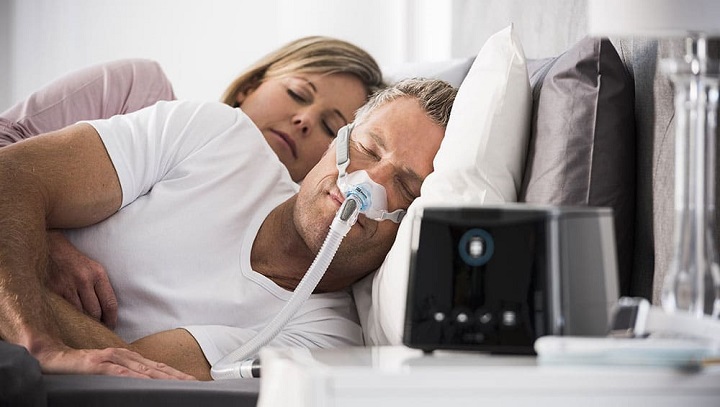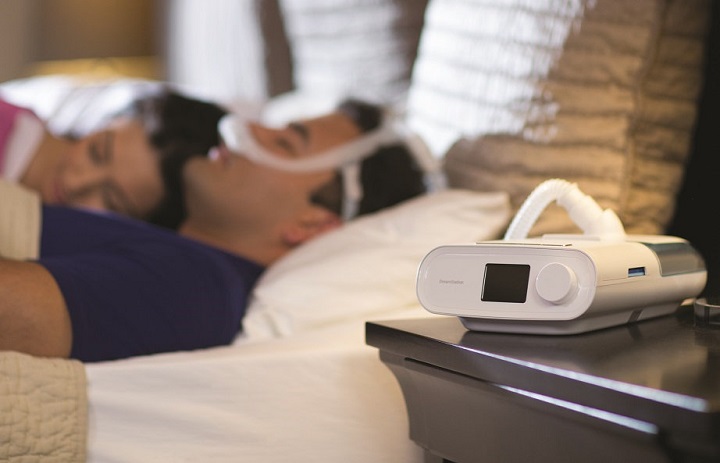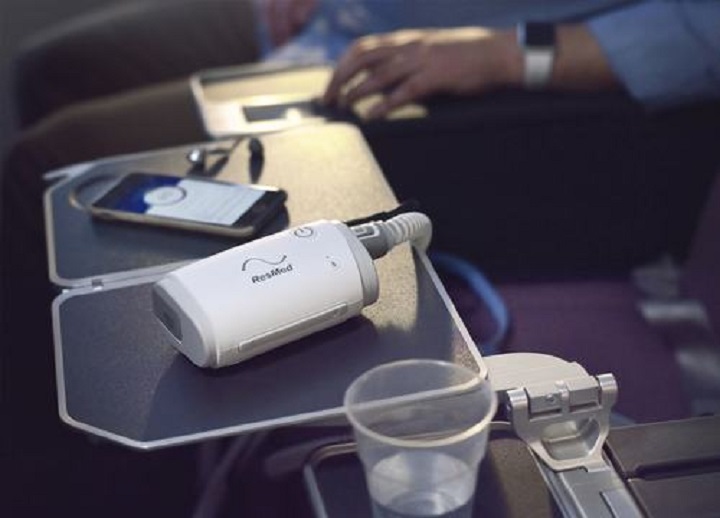We all know the benefits of a good night’s sleep. We don’t want to wake up tired and grumpy, so we do everything that’s in our power to get a restful night. We opt for bamboo sheets, practice some aromatherapy with relaxing essential oils or drink a cup of calming tea but not all problems can be solved with simple tips and tricks.
For some people, the reason they can’t wake up rested has to do with health problems like sleep apnea. Sleep apnea is a disorder where your breathing is paused for short periods in your sleep. The interruptions can be shorter or longer and happen many times during the night. This disrupts your sleep and tires out your body so you wake up exhausted in the morning.
What Are The Symptoms and Types of Sleep Apnea?

Sleep apnea can be hard to diagnose by yourself because you might not remember waking up but you could ask someone else to keep an eye on you when you sleep or you could record yourself while sleeping.
Common symptoms are:
- Snoring, especially if repeated and loud;
- Choking, gasping, and snorting;
- Sleepiness during the day;
- Headaches;
- Sore throat or dry mouth in the morning;
- Difficulty concentrating.
Risk factors for sleep apnea:
- Sex – Males have a greater risk of sleep apnea;
- The risk increases as you get older;
- Obesity;
- Smoking;
- Nasal congestion;
- Difference in anatomical features – like enlarged tonsils or tongue, receding jaw, small upper airway, etc.
Types of Sleep Apnea
Obstructive Sleep Apnea – This is the most common type and it happens when the airway is blocked by the muscles that relax during sleep and disrupt the normal flow of air;
Central Sleep Apnea – This happens when there’s a problem with the central nervous system which doesn’t control the breathing muscles as it should. It stops sending signals for a short period of time which leads to interruptions in breathing;
Mixed Sleep Apnea – This is a combination of obstructive and central sleep apnea.
What Can You Do If You Have Sleep Apnea?
CPAP Therapy

This is the usual treatment that’s prescribed for sleep apnea. A CPAP (continuous positive airway pressure) therapy involves the use of a specialised machine that helps keep the airway open so you can breathe normally.CPAP machines have motors that produce pressurised air that goes through an air filter and into a tube. The tube takes the air to the mask that’s on your face. In this way, the airways stay open and you receive a constant flow of oxygen.
Regular CPAP machines are big and commonly used at home but there are travel CPAP machines as well that are more compact and allow you to take them anywhere you go. There are several reasons why it’s better to purchase portable cpap machines to deal with sleep apnea.
They’re Mobile
The smaller size of travel CPAP devices enables you to take them with you without worrying about all the extra luggage. If you’re someone who travels all the time, you’ll benefit greatly from having a small device that’s easy to carry around. Because the regular model and travel CPAP devices use the same technology, they’re safe to be used at home as well.
They’re Quiet
Unlike older models that can be pretty loud, new technology makes the CPAP machines quieter. So, if you don’t like background noise, portable CPAP machines may be your cup of tea.
They Have Compact Design

Their design allows for easier packing. The tube is often slimmer which can add to the comfort during sleeping because it’s easier to move without big tubes around you. So, such a device won’t take up much space in your bedroom, you can simply store it in your nightstand’s drawer and always have it nearby to put on before going to sleep.
They Allow to Use Various Masks
These devices usually can be used with any mask you prefer although it depends on the model that you’re going to choose. There are three types of masks available:
- Full mask – It covers your mouth and nose;
- Nasal mask – It fits over your nose;
- Nasal pillow mask – It fits on your nose with two nasal prongs and it’s the most lightweight one.
Which one you’ll choose it’s up to you but bigger masks can sometimes offer a better seal, or a doctor might recommend a certain type of mask based on your needs. For example, if you breathe through your mouth, a full mask may be prescribed. Most importantly, you should always feel comfortable no matter which mask you wear. If something doesn’t work, try different options.
They Offer a Great Variety of Features

Having a travel CPAP machine comes with many additional features.
- They usually use integrated batteries that are easy to change or charge and some can use solar energy as well;
- Some models can have integrated displays for settings so you wouldn’t have to use a smartphone app;
- Available with humidifiers that you can use on the go if you need one.
Some popular models to check out are the ResMed AirMini, Philips DreamStation Go Travel, and Transcend miniCPAPs.
Lifestyle Changes and Natural Remedies
In addition to the CPAP therapy or if using a machine just isn’t for you, there are other things that you can try to make your life with sleep apnea easier.
You could try changing sleep positions, elevating your body with the right type of body pillow, or using adjustable beds. Some people only experience difficulties when sleeping on their back, so changing the position can alleviate the symptoms.
Exercise and maintain a healthy weight because losing weight helps with sleep apnea. Even if there’s no need for you to lose weight, exercising alone gives you energy during the day and improves your sleep. Yoga is helpful because by doing breathing exercises, the oxygen levels increase.

Avoid alcohol, smoking, and certain medications. They all can relax the muscles in the throat and lead to swelling and inflammation in the airways, snoring, and difficulty breathing.
Some oral appliances can put pressure on your tongue or jaw and help keep the airways open.
Using a humidifier to keep the air moist can improve sleep apnea because dry air irritates the airways. You can add essential oils that have anti-inflammatory benefits but always consult with a professional because you don’t want to make the condition worse.